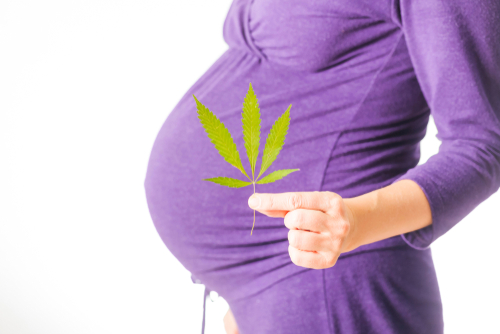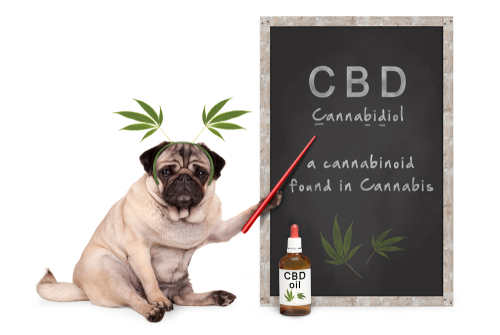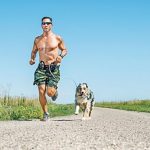[dropcap]F[/dropcap]our to six times a week, elite triathlete Clifford Drusinsky wakes up at 3 AM to train. But before he sets out, he opts not for a sports drink but for 20 milligrams of THC in a marijuana energy bar. By the time it kicks in, 30 minutes later, he’s started an hour in the pool, a three-hour bike ride, or a 13-mile run. “Marijuana relaxes me and allows me to go into a controlled, meditational place,” says Drusinsky. “When I get high, I train smarter and focus on form.”
Drusinsky’s weed-fueled regimen seems to be working. The 39-year-old athlete took the podium for his age group in nine major triathlons in 2013, including a first-place finish at the South Beach Triathlon in Miami (although he’s careful to note he wasn’t high during any of the races — taking marijuana from one state to another, after all, is still illegal). And with weed now legal in his home state of Colorado, Drusinsky spreads the gospel of marijuana-infused fitness at the Denver gym he owns, F.I.T.S. Conditioning, inviting his two dozen clients to indulge via edibles before guiding them through dynamic stretches and TRX drills. “I work out longer high,” says one client, John Hunt, an entrepreneur. Adds product developer Chad White: “If I take a little bit before heavy training, I am totally dialed in.”
Jocks like Drusinsky who publicly proclaim their cannabis use are rare. (Canadian snowboarder Ross Rebagliati and mixed martial artist Nick Diaz are among the few who have sung the praises of weed as a training tool.) But with a steady creep to legalization shaking off the stigma of marijuana — decriminalization initiatives have passed or are under way in some 20 states — you can expect more athletes to come out of the cannabis closet.
Medical marijuana’s benefits for alleviating pain, decreasing nausea, and improving mood are well known. So it’s not hard to see why those same qualities would appeal to endurance athletes, who must cope with high levels of pain, stress, and boredom during grueling hours-long events. “It may help some athletes get into a zone and put their bodies through very tough physical activity,” says Mark Ware, a McGill University professor and executive director of the Canadian Consortium for the Investigation of Cannabinoids. “It may enable them to focus on those repetitive tasks.”
JUST AS ENDORPHINS HELP YOU PUSH THROUGH AN INTENSE WORKOUT, THESE ENDOCANNABINOIDS COULD INCREASE YOUR PAIN THRESHOLD TO DO THE SAME.
And it’s not just endurance athletes. “Frank,” a climbing guide in Boulder, Colorado, who prefers not to use his real name, says that two-thirds of the pro climbers he knows use marijuana before climbing and working out. “People have a stereotype of a zoned-out stoner, but for a lot of people it makes them superfocused and motivated,” says the guide. “For climbers I work with, it’s like drinking two espressos. They’re psyched, ready to go.”
Whether marijuana really gives these athletes an edge isn’t something exercise science has solved. “What research we have is anecdotal,” says Iñigo San Millán, director of the Human Performance Lab at the University of Colorado. “We know it might help with inflammation, sleep, and pain relief. But we don’t know if it will improve performance — or if it might even jeopardize it.”
Here’s what we do know: When marijuana is ingested, its chemical compounds, known as cannabinoids, bind with receptors in the brain and body that regulate pain, mood, appetite, and memory. Scientists suspect that these receptors may play a role in aerobic activity’s neurological benefit — a.k.a. the runner’s high. “The endocannabinoid system works like endorphins,” says Andrea Giuffrida, an associate professor at the University of Texas Health Science Center and an expert on endocannabinoids. Giuffrida and his colleagues have conducted studies showing that after high-intensity treadmill running, people have elevated levels of naturally occurring endocannabinoids in their bloodstream. What that suggests? Just as endorphins help you push through an intense workout, these endocannabinoids could increase your pain threshold to do the same.
There could be other athletic advantages beyond pain relief. Studies have shown that low doses of THC increase motor activity in mice — so maybe a bit of pot could equal a little extra speed. What’s more, an intriguing study from the University of Bordeaux in France found that when the brain is exposed to marijuana, it reacts to the THC by producing more pregnenolone. That chemical is a precursor to the natural steroids produced by the body, and is often used as a supplement to increase energy and reduce fatigue.
“SOME PEOPLE GET HIGH AND THEIR MUSCLE MEMORY LOCKS IN AND THEY FEEL LIKE THEY CAN’T MISS … SOME PEOPLE GET HIGH AND FALL APART.”
But before you start a pot-fueled routine, know that marijuana can come with downsides. Research shows it slows reaction time and may encourage riskier decisions, and it inhibits basic problem-solving. Pot is also known to increase heart rate by 20 percent or more for up to three hours after smoking — a negative for athletes.
There’s one last problem in parsing marijuana’s competitive advantages and disadvantages, says former Denver Broncos tight end Nate Jackson, who used marijuana during his six seasons in the NFL to deal with pain: Pot affects different people in different ways. “Some people get high and their muscle memory locks in and they feel like they can’t miss,” says Jackson. “Some people get high and fall apart.”
Perhaps the main performance-enhancing properties of cannabis can’t be measured by split times or heart rate. Athletics, after all, isn’t solely about winning. Enjoying the day-to-day training is a huge part of the experience. And we don’t need science to prove that, for many of us, a little pot can make nearly anything more fun. For Drusinsky, the benefits of using pot far outweigh the risks, and not just on the racecourse. He’s in sponsorship talks with a Colorado edibles company, and may have his own line coming out soon. He describes the product as having “the perfect percentages of proteins, carbs, and fat for the outdoor athlete.” That, and it will get you nice and toasty.
(1295)





Leave A Reply